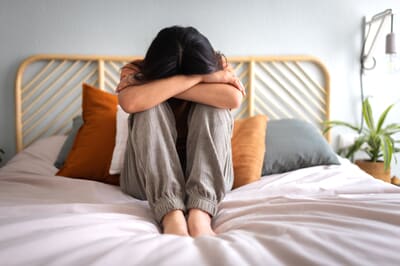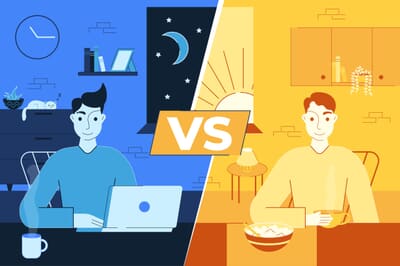Sleep apnea (or sleep apnoea) can be seriously detrimental to your sleep quality. As more research is undertaken, and more people are able to be diagnosed with the condition, we’ve answered the most asked questions surrounding sleep apnea.
What is Sleep Apnea?
A simple definition of sleep apnea is when your breathing stops and starts as you sleep. The word ‘apnea’ comes from the Greek word ‘breathless’.
Sleep apnea is a condition that can take a variety of forms, such as ‘obstructive sleep apnea’ or ‘central apnea’ - but generally it refers to choking or stopping breathing as you sleep.
As you can imagine, this condition can become very serious.
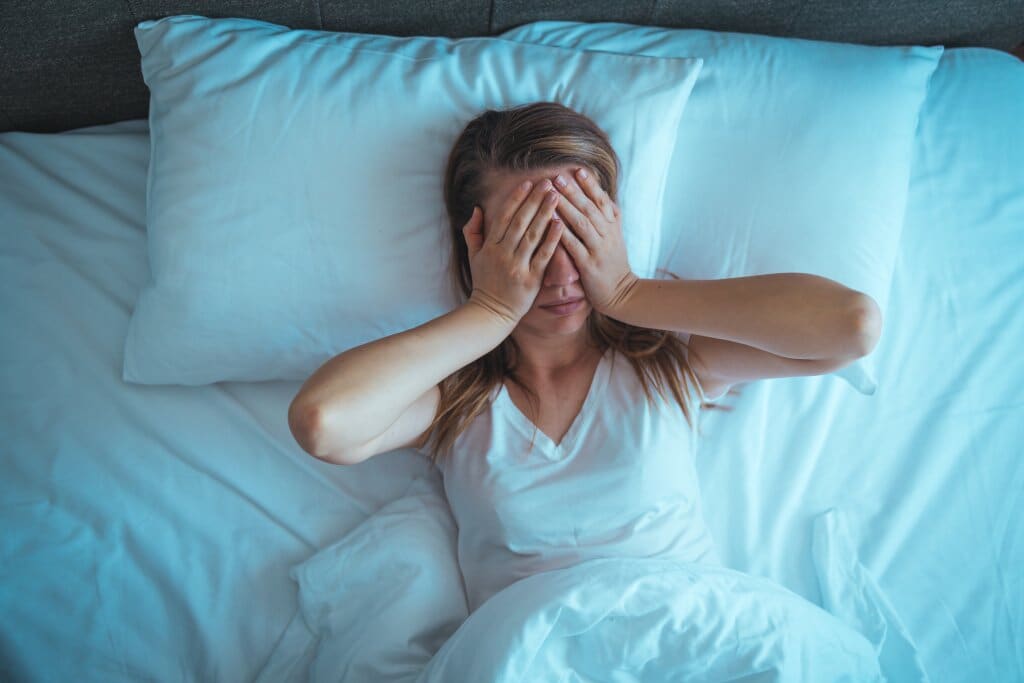
There are three main types of sleep apnea:
Obstructive Sleep Apnea - The most common type of sleep apnea, OSA occurs when something is obstructing your airway.
This is usually due to the muscles in the back of your throat relaxing as you sleep, collapsing too much to allow you to breathe normally.
Your brain doesn’t get enough oxygen, so it wakes you up gasping for air.
Central Sleep Apnea - This occurs when your brain isn’t sending the appropriate signals to the rest of your body.
For one reason or another, such as a brain infection or opium use, the brain doesn’t send signals to the muscles needed for normal breathing as you sleep.
Complex Sleep Apnea - A combination of obstructive sleep apnea and central sleep apnea, complex sleep apnea is when even after the airways are cleared, sufferers still wake up gasping for air.
There is still research to be done on complex sleep apnea, however it occurs when something other than the throat muscles relaxing and neurological problems cause breathing to stop and start in the night.
What causes Sleep Apnea?
The most common cause of obstructive sleep apnea is obesity and excessive weight gain. Fat deposits in the upper respiratory tract cause the airway to be much narrower than is needed, so when the muscles relax during sleep, the airway is restricted.
Other factors that can increase your risk of suffering from obstructive sleep apnea:
- A particularly narrow throat
- A round head shape or large neck
- Older age (although children and young people can still suffer)
- Large tonsils or adenoids
- Allergies
- A deviated septum or nose structure problems
- Smoking
- Alcohol or drug misuse
- Hypothyroidism
- Sleeping on your back
You’re also particularly susceptible to suffering from this condition if you have chronic obstructive pulmonary disease (COPD).
Symptoms of sleep apnea while you sleep include:
- Loud snoring
- Waking up a lot
- Gasping, choking or snorting
- Breathing stopping and starting suddenly
Symptoms of sleep apnea while you’re awake include:
- Tiredness
- Difficulty concentrating
- Mood swings
- Headaches when you wake up
- Dry mouth
Of course, it can be hard to know what symptoms you’re experiencing, especially when you’re asleep. The NHS recommends asking someone to stay up while you sleep to see if you’re experiencing any of these symptoms.
If you’re experiencing any of these systems and think you might have sleep apnea, you should talk to your doctor - this is the only surefire way on knowing if you have it.
The most common symptom is snoring, but it doesn’t always mean you have it - equally, you can have sleep apnea without being a loud snorer, so check with your doctor and try not to self-diagnose.
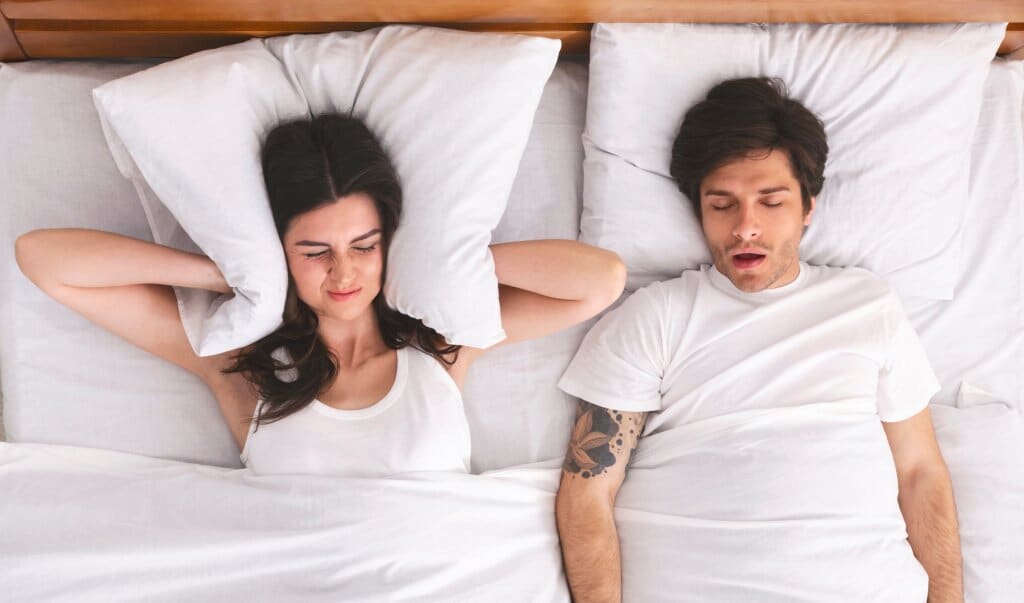
Sleep Apnea in children
Sleep apnea in children is commonly caused by enlarged tonsils or adenoids, or a large overbite. Sleep apnea in children can also be caused by less common issues such as a tumour or growth in the airway, or birth defects such as Down syndrome, which can result in enlargement of the tongue, and Pierre-Robin syndrome, which can cause the tongue to fall to the back of the throat, as well as a small lower jaw.
Child obesity is much less likely to be linked to sleep apnoea than adult obesity is, but this can still be a factor.
How dangerous is Sleep Apnea?
If left untreated or undiagnosed, sleep apnoea can become incredibly dangerous, and possibly kill you - although this is unlikely.
Sleep apnoea can lead to other health problems, such as:
- High blood pressure
- Higher chance of having a stroke
- Type 2 diabetes
- Depression and low mood
- Heart disease
You could also find that due to consistent broken sleep, this sleep disorder causes you to become overtired, increasing the risk of an accident due to lack of sleep. You’ll also find it much more difficult to concentrate on everyday tasks and at work or school.
While it's unlikely that sleep apnea will kill you directly, it may lead to other serious health problems that reduce your lifespan, or even cause sudden death.
If you’ve been diagnosed with sleep apnoea, you may have to tell the DVLA, as excessive tiredness can cause road accidents. You shouldn’t drive until your symptoms are under control - read the GOV.UK rules for more information on driving with sleep apnoea.
Can Sleep Apnea be treated?
If you’re already diagnosed with sleep apnea, there are several things you can do to treat your symptoms:
- Lose weight if you’re overweight
- Keep active and exercise regularly
- Sleep on your side - you can find special pillows that aid side sleeping, such as the Emma® Microfibre Pillow, which keeps your head and neck supported
Try to avoid smoking, drinking alcohol before bed, or taking sleeping pills unless recommended by a doctor.
How can you prevent Sleep Apnea?
To reduce your chances of developing sleep apnea, you can maintain a healthy weight, and ensure your sleeping position is optimised for allowing your airways to open. If you do sleep on your back, read our guide on The Best Mattresses For Back Sleepers to learn how to sleep in this position safely. You can also use a gum-shield or other anti-snoring devices that help open your airways.
Some people with sleep apnea may need a CPAP machine. This gently pumps air through a mask over your mouth or nose as you sleep. This can stop your airways from getting too narrow, as well as helps lower your blood pressure by keeping your breathing consistent.
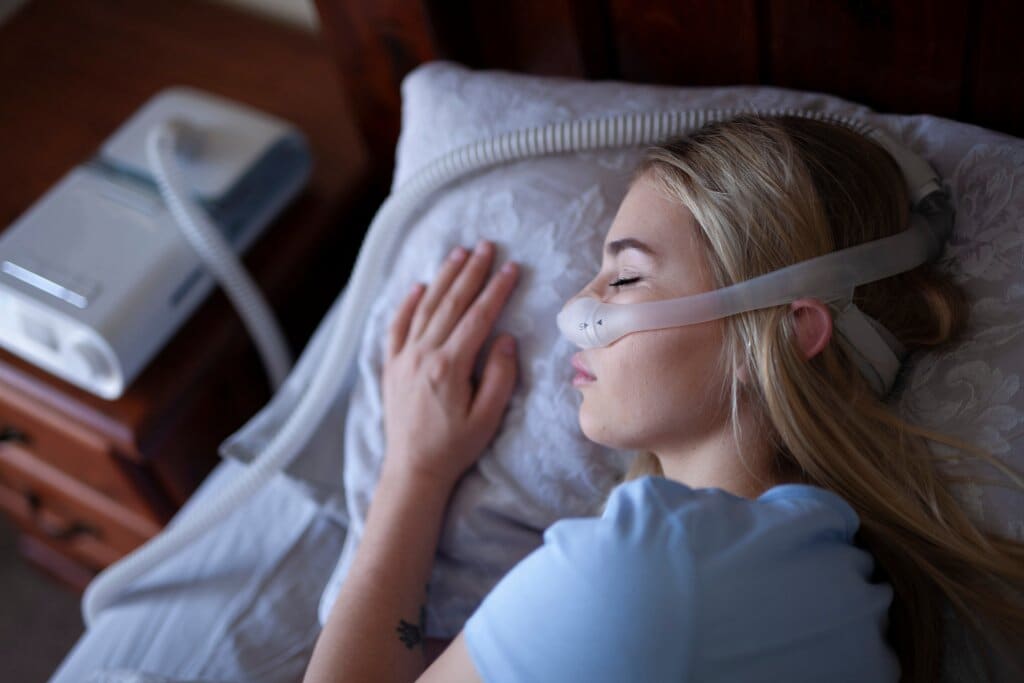
How to get tested for Sleep Apnea
If you think you’re experiencing the symptoms of this condition, you should see your GP immediately. If your GP thinks you are suffering, they will likely refer you to a specialist sleep clinic for further tests.
You’ll likely be tested with special devices that measure your breathing and heartbeat while you sleep. You can usually do these tests from home, but you might be asked to stay at the clinic to be monitored overnight.
These tests will give you an AHI score. An AHI (apnea-hypopnea index) score indicates how many breathing pauses per hour you experience as you sleep. A normal AHI score is less than 5, however someone with severe sleep apnea may have an AHI score of more than 30.
You can also check out our article on the most common sleep disorders, which gives you information on night terrors, restless leg syndrome and more. Remember to do your own research and to consult a doctor if you think you’re suffering from any sleep disorder or condition.



